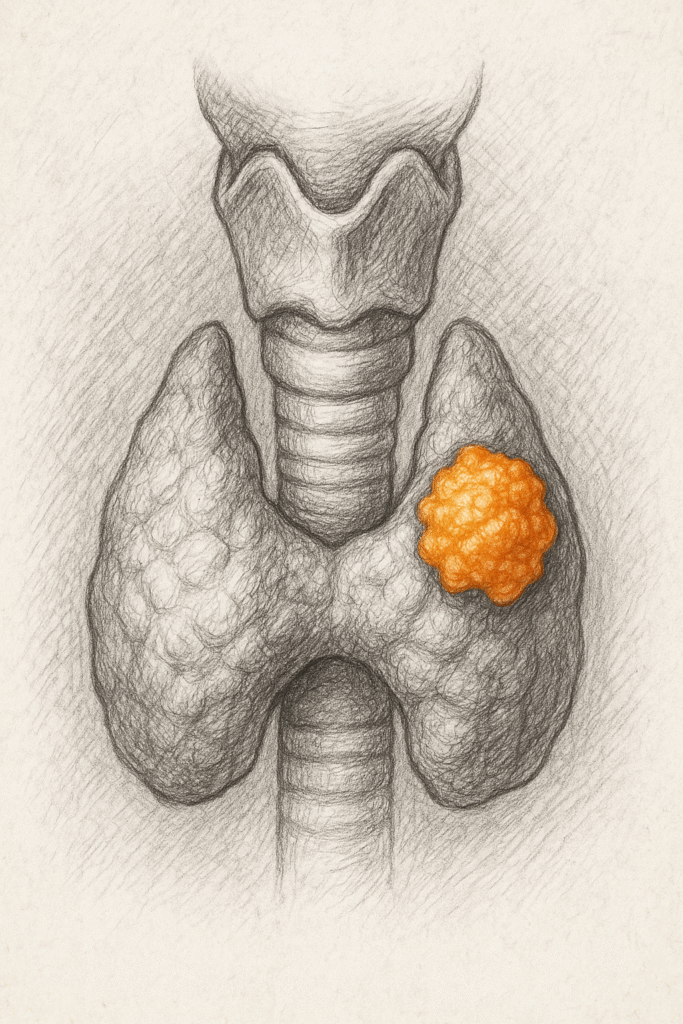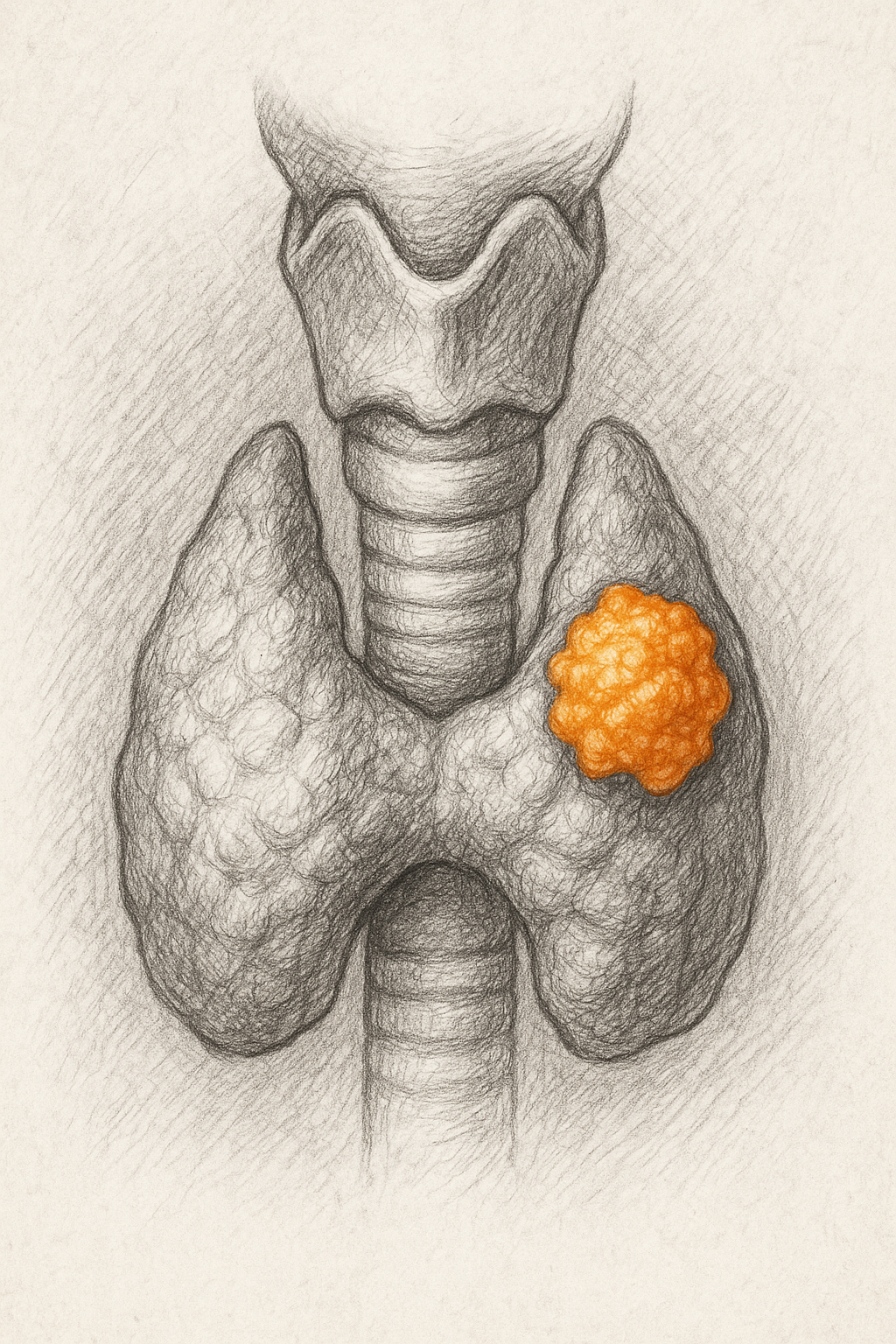

Primary thyroid lymphoma (PTL) requires chemotherapy-based treatment rather than surgical resection, with surgery reserved only for diagnostic purposes when minimally invasive techniques fail. Diffuse large B-cell lymphoma (DLBCL) comprises 94% of cases, and while overall prognosis is favorable, Stage II disease at diagnosis correlates with worse outcomes.

Study Design & Population
Retrospective cohort study from single tertiary center (January 2008 – June 2024)
- 16 patients with pathologically confirmed PTL
- Mean age 59.3 ± 13.6 years
- Female predominance (62.5% vs 37.5% male, ratio 1.7:1)
- 68.8% presented at Stage II disease
Key Findings
- DLBCL represented 93.8% of cases, MALT lymphoma 6.2%
- Chemotherapy was primary treatment in 93.8% of patients (R-CHOP most common)
- 50% achieved remission after first-line therapy; 0% cured with second-line treatment
- Median disease-free survival: 35 months
- Median overall survival: 37.5 months
- All deaths occurred in Stage II patients
Clinical Implications
- Avoid upfront surgery – chemotherapy is definitive treatment for PTL
- Fine needle aspiration biopsy (FNAB) diagnosed only 18.8% of cases, suggesting need for tissue biopsy
- CD20 positivity in all cases confirms B-cell origin requiring rituximab-containing regimens
- Stage II disease warrants aggressive monitoring due to higher mortality risk
Limitations
- Small sample size (n=16) limits generalizability
- Single-center retrospective design with inherent selection bias
- 37.5% lost to follow-up compromises survival analysis
- Short median follow-up compared to literature standards
- Only 56% received PET-CT staging at diagnosis
Source: https://link.springer.com/article/10.1007/s12672-025-03218-3




